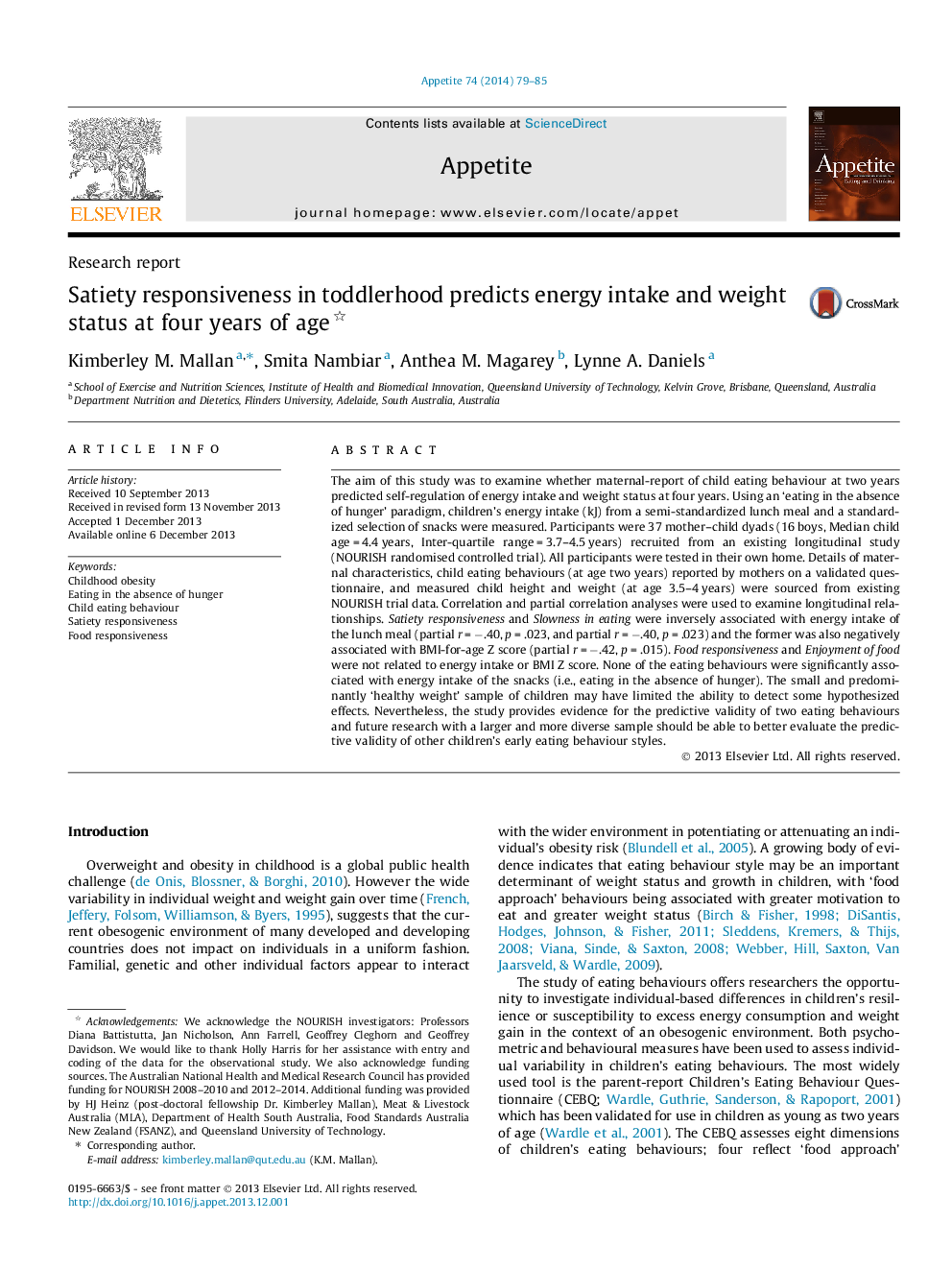| کد مقاله | کد نشریه | سال انتشار | مقاله انگلیسی | نسخه تمام متن |
|---|---|---|---|---|
| 939607 | 1475406 | 2014 | 7 صفحه PDF | دانلود رایگان |
• Satiety responsiveness at age 2 years predicted lower lunch intake at age 4 years.
• Satiety responsiveness also predicted lower BMI Z score at age 4 years.
• Slowness eating at age 2 predicted lower lunch intake but not weight at age 4 years.
• Food responsiveness and Enjoyment of food did not predict intake or weight.
• Eating behaviours at age 2 did not predict ad libitum snack intake at age 4 years.
The aim of this study was to examine whether maternal-report of child eating behaviour at two years predicted self-regulation of energy intake and weight status at four years. Using an ‘eating in the absence of hunger’ paradigm, children’s energy intake (kJ) from a semi-standardized lunch meal and a standardized selection of snacks were measured. Participants were 37 mother–child dyads (16 boys, Median child age = 4.4 years, Inter-quartile range = 3.7–4.5 years) recruited from an existing longitudinal study (NOURISH randomised controlled trial). All participants were tested in their own home. Details of maternal characteristics, child eating behaviours (at age two years) reported by mothers on a validated questionnaire, and measured child height and weight (at age 3.5–4 years) were sourced from existing NOURISH trial data. Correlation and partial correlation analyses were used to examine longitudinal relationships. Satiety responsiveness and Slowness in eating were inversely associated with energy intake of the lunch meal (partial r = −.40, p = .023, and partial r = −.40, p = .023) and the former was also negatively associated with BMI-for-age Z score (partial r = −.42, p = .015). Food responsiveness and Enjoyment of food were not related to energy intake or BMI Z score. None of the eating behaviours were significantly associated with energy intake of the snacks (i.e., eating in the absence of hunger). The small and predominantly ‘healthy weight’ sample of children may have limited the ability to detect some hypothesized effects. Nevertheless, the study provides evidence for the predictive validity of two eating behaviours and future research with a larger and more diverse sample should be able to better evaluate the predictive validity of other children’s early eating behaviour styles.
Journal: Appetite - Volume 74, 1 March 2014, Pages 79–85
